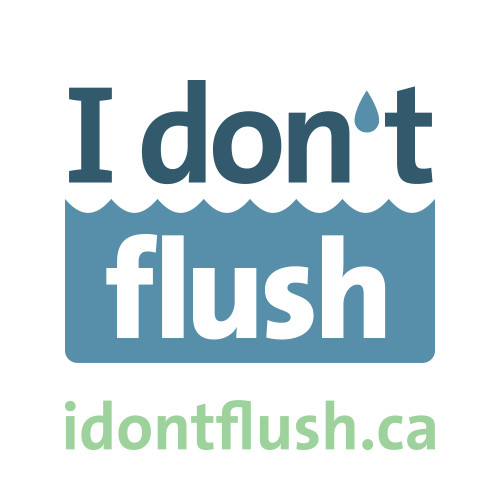
“I Don’t Flush…”
A new website has appeared on the horizon called idontflush.ca and is encouraging people not to flush. Yes, you read it right. They’re telling people not to flush! This website and campaign is supported by various organizations and individuals informing people of the hazards of flushing certain items down the toilet or drains. Finally we plumbers are no longer alone in the battle to protect the public, our environment and our water!
For over 30 years Plumb Perfect has been explaining to clients why they shouldn’t dispose of their greasy food, baby wipes, chemicals, etcetera down their toilets or drains. As a refresher, or for all those who haven’t heard our “what not to do” to your home’s plumbing, here are our top 5:
#1 – Fats, Oils & Grease (“FOG”) – Plumbers everywhere will say this is their number one drain call. Every year millions of kilograms of FOG go down drains or are flushed. They solidify and build up in your homes pipes causing odour and eventually back-ups. FOG must also be broken down in main sewer lines and at sewage treatment plants, costing taxpayers millions of extra dollars. Always pour grease or oil into an old can or container and throw it in the garbage. Scrape food off plates into your compost or throw in garbage. Wipe pans and plates with paper towels to remove all oils and grease and throw them in the garbage.
#2 – Paper Products – The only thing that should be flushed down a toilet is human waste and toilet paper. Other paper products such as paper towels and facial tissues are not designed to break down quickly and can cause clogs. Even most 3-ply or “extra soft and thick” toilet paper can be too much for your toilet and the sewer system to handle.
#3 – Personal Care Products – Just because it says it’s ‘flushable’, doesn’t mean it is! Baby wipes, personal wipes, tampons, pads and diapers are designed to absorb and expand so can cause big problems in home drains and main sewer lines. Same goes with cotton swabs, cotton balls, condoms, dental floss and hair removing waxes. Always throw these items in the garbage.
#4 -Chemicals – Volatile Organic Compounds or VOC’s, are the worst environmental hazards in household cleaning, with ammonia, phosphorus and nitrogen being the most dangerous. These chemicals cannot be removed by our sewage treatment plants and harm our water, aquatic life and animals while encouraging the growth of algae in our lakes and streams. They also cause both indoor and outdoor air pollution, harming our health. In septics, chemicals, particularly anti-bacterial products, upset the bacterial balance and create more sludge. VOC’s can be found in everyday cleaning products such as bleach, dishwasher detergents, household cleaners and so on. Dispose of these and any other chemicals such as paint, glues, etcetera safely at your local recycling/disposal centre. Switch to natural cleaning products which are very effective in cleaning about 90% of your home.
#5 – Prescription & Non-Prescription Drugs – Sewage treatment plants are not designed to remove pharmaceuticals from our water. Although some drugs can be reduced in concentration by treating the water in the conventional way, such as with chlorine, there are still many more that are unaffected and harm our water, aquatic life and even us, especially children. Please return any unused or expired medications to pharmacies that have a “Take It Back” drug program or, at the very least, throw them in the garbage.
The main thing to remember here is: the toilet is not a garbage can… and neither is the drain. Together we can avoid smelly backups, protect our environment and save money… and be happier for it!
For further information please check out idontflush.ca or our other blogs and plumbing tips.